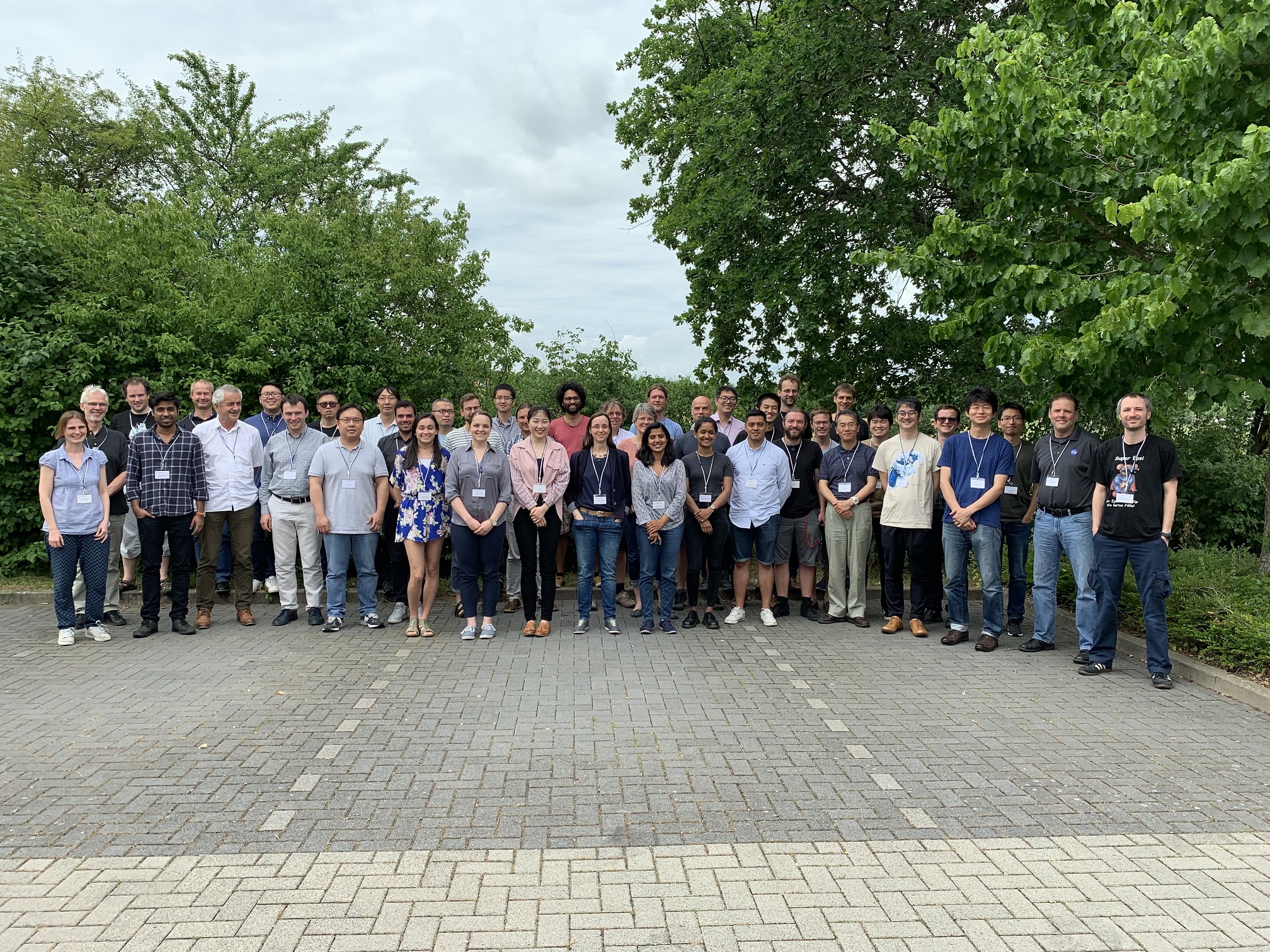- https://www.esiwace.eu/events/19-21-june-2019-dyamond-2nd-hackathon-mainz-de
- 2nd DYAMOND-ESiWACE Hackathon
- 2019-06-19T10:00:00+02:00
- 2019-06-21T15:00:00+02:00
Jun 19, 2019
10:00 AM
to
Jun 21, 2019
03:00 PM
(Europe/Berlin / UTC200)
Overview
This event aims at the exploration of a data deluge obtained from global high-resolution atmospheric simulations that have been carried out in the scope of the DYAMOND initiative. Due to their extreme computational requirements, global high-resolution weather and climate simulations are of interest for scalability and performance investigations, also for the analysis workflow, which constitutes a central pillar of ESiWACE. Therefore, DYAMOND and ESiWACE are closely linked, with the centre of excellence ESiWACE supporting the DYAMOND science case through its computational performance considerations and infrastructure. It is the succesor of the 1st DYAMOND Hackathon in 2018, which was hostet by the Max Planck Institute for Meteorology (MPI-M).
One and a half days of the event will be dedicated to presentations on:
- ESiWACE and its central task of establishing global high-resolution atmospheric and coupled atmosphere-ocean demonstrators
- DYAMOND motivation and overview
- The scientific findings that have been achieved so far through DYAMOND and that are expected in the future through more global high-resolution experiments
- Introduction of the high-resolution models that have been involved in DYAMOND so far, with special focus on their model data (data formats and data arrangements, the methodology to process them, etc.)
Another one and a half days will be dedicated to the actual hackathon, that is participant-, community- and science-driven on-site exploration of the available DYAMOND data.
Potential topics subject to hackathon investigation comprise (but are not limited to):
-
An exploration of differences between hydrostatic and non-hydrostatic model
-
Effects of implicit versus explicit time-steppin
-
Global distribution of cloudiness and effects on shortwave radiatio
-
Structure and statistics of tropical storms
-
On the representation of the ITCZ and its associated wind systems (Doldrums)
But participants are also invited to develop their own topics. Many contributions will form the basis for publications to be submitted as part of the DYAMOND special issue in the Journal of the Meteorological Society of Japan, whose submission deadline is the end of the year.
Further information/requirements:
-
The hackathon is free of charge. Accommodation costs will be covered through ESiWACE, if participants request accommodation through the registration form.
-
DYAMOND data is hosted by DKRZ and access will be made available to all participants via ssh connections. Please bring your own notebook with pre-installed ssh-software (e.g., Putty, WinSCP for windows; ssh-client under linux, etc.).
-
Tutorials, and onsite expertise, are provided in the use of CDOs and other tools to lighten the data processing burden.
-
Available software to process the data include: CDO, Python (2.7.12, 3.5.2) and jupyter notebooks (the latter via jupyterhub.dkrz.de), R (3.2.0, 3.3.3, 3.5.3)
Venue and Directions
The event takes place at Atrium Hotel, Mainz, which is conveniently located in proximity of Frankfurt Airport. Coming from the airport, take a train (IC/ICE: ca. 17 min, or S8 (cheaper), directed to Wiesbaden: ca. 35 min) to Mainz Hbf (Central Station).
From Mainz Hbf, you can take Bus No 55 (directed to Finthen/Theodor-Heuss-Straße) or No 56 (directed to Wackernheim/Rathausplatz) and leave the bus at the stop "Atrium Hotel Mainz". From there, start walking in driving direction and you will reach the hotel (located on the right side).
Address: Atrium Hotel Mainz, Flugplatzstr. 44, 55126 Mainz.
Registration
Registration is closed.
Agenda
The finalised program can be downloaded here.

Slides
02 Masaki Satoh: Global Non-Hydrostatic Modelling
03 Philipp Neumann: ESiWACE, High-Resolution Demonstrators and Scalability
04 Niklas Röber: DYAMOND Visualization
12 Ludek Kucera: Meteorology and the Project LOWAIN
13 Ralf Müller: CDO's Python Bindings
15 Daniel Klocke: 1st DYAMOND Hackathon
17 Woosub Roh: Evaluations of Cloud and Precipitation Using a Satellite Simulator
18 Peter Düben: To Improve Accuracy in Weather and Climate Models via a Reduction of Precision
